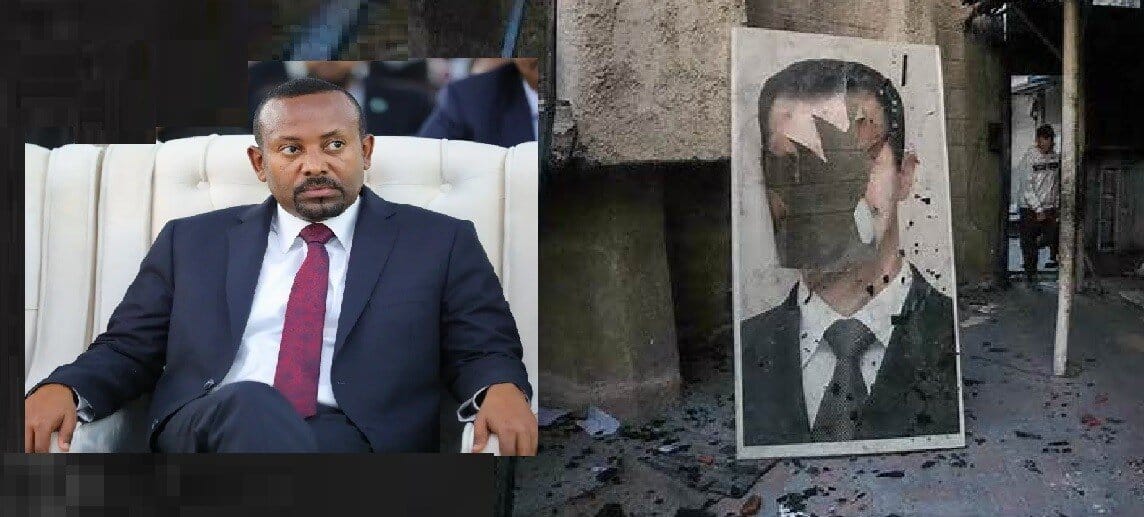By William Davison & Salma El Wardany – Jun 17, 2013
Egypt must drop its objection to an Ethiopian dam on the main tributary of the Nile River or it may struggle to ensure adequate supplies from the world’s longest waterway, former U.S. Ambassador to Ethiopia David Shinn said.
A $4.3 billion, 6,000-megawatt hydropower plant, set to be Africa’s largest on completion in 2017, has raised concern in Egypt that it will cut supplies of water allocated by accords put in place more than five decades ago. President Mohamed Mursi told supporters in Cairo on June 10 his government will “defend each drop of Nile water with our blood” if the country’s water security is threatened.
The Grand Ethiopian Renaissance Dam project, funded solely by Ethiopia’s government, is a “game-changer” because Egypt has historically blocked international financing for large upstream Nile projects, Shinn said on June 12. The best way for Egypt to secure its water needs is by cooperating on the project that could be “transformational” in terms of industrializing East African economies, he said.
“Ethiopia is the only country in the region that has the water to make a huge contribution to increased availability of electricity,” Shinn said in an e-mailed response to questions. “It could solve all of Ethiopia’s power needs, sell power at a profit to neighbors, help control periodic flooding in Sudan and contribute significantly to regional economic integration.”
River Diverted
Ethiopia announced the project on the Blue Nile River, the largest of the Nile’s two tributaries, a month after former Egyptian President Hosni Mubarak was deposed in February 2011. Last month, Ethiopia diverted the flow of the Blue Nile as part of the construction process.
Ethiopia is the source of 86 percent of the water that flows into the Nile, a river that runs 4,160 miles through 11 countries from Burundi in the south to Egypt, where it empties into theMediterranean Sea.
A study on the dam released last month found the project wouldn’t cause “appreciable” harm downstream nations, according to Ethiopia’s government, which says it won’t use the dam for irrigation. The joint report was inadequate because it failed to “clarify in detail the impacts of the dam,” the Egyptian presidency said in a statement on June 3.
The dispute over the dam resonates in Egypt, where the Nile has long been viewed as much of a symbol of the country as its primary water source. Mursi, in a speech before an Islamist audience on June 10, said that if Egypt is the “‘gift of the Nile,’ then the Nile is God’s gift to Egypt.”
Sugar, Wheat
Egypt relies on irrigation from the Nile to grow almost all of its cereals, fruits and vegetables. The country is Africa’s biggest wheat grower and the continent’s second-largest sugar producer after South Africa, according to the Food and Agriculture Organization.
In meetings between Mursi and Ethiopian Prime Minister Hailemariam Desalegn, the Egyptian leader was “only interested in constructive engagement,” according to Hailemariam’s spokesman, Getachew Reda. That contrasts with antagonism in the past, he said in a phone interview.
“Egypt will lose the upper hand if they decide to opt out from cooperating as the upstream countries will go ahead with their industrial revolutions with or without Egypt,” said Ana Cascao at the Stockholm International Water Institute. “The best way for Egypt to secure the water it needs in the long term is by entering into a new era of cooperation.”
Power Lines
Mursi and Hailemariam met at an African Union summit last month in Ethiopia’s capital, Addis Ababa, where Mursi suggested Egypt may fund a transmission line from the dam, Getachew said. Ethiopia plans to sell 2,000 megawatts of power to Egypt by 2020.
“With the coming to power of President Mursi there is a changing dynamic,” he said on June 9. “They would rather benefit from the dam.”
Egypt’s foreign minister arrives in Ethiopia today to engage in more “constructive dialog,” Egyptian Ambassador to Ethiopia Mohamed Edrees said in a phone interview on June 12. “We are working to find a mutually agreed way forward.”
Mursi’s comments to his supporters may be aimed at deflecting domestic criticism, said Nadia Ahidjo, a Nairobi-based analyst at advisory group africapractice. Opposition groups plan to hold mass rallies on June 30, a year after Mursi was sworn in as Egypt’s first democratically elected civilian president, in a bid to remove him from office and trigger new elections.
Domestic Constraint
The instability constrains Mursi from rallying support for his position on the dam, said Ahidjo. “When you don’t have domestic support it’s very difficult to embark on a regional agenda,” she said.
The Nile discharges about 85 billion cubic meters (3 trillion cubic feet) of water annually, according to Austin, Texas-based, Stratfor Inc., which is enough to fill almost 2.5 Hoover Dams.
Under a 1959 quota agreement between Egypt and Sudan that excluded other nations in the Nile Basin, Egypt was given 55.5 billion cubic meters a year and Sudan 18.5 billion cubic meters, the Texas-based consulting firm said in a May 28 note sent by e-mail. The rest evaporates.
Egypt’s requirement for an additional 21 billion cubic meters by 2050 for its growing population will mean there is “little water to spare,” Stratfor said. An equitable distribution of water based on needs and resources may give Egypt about 50 billion cubic meters, according to Cascao.
Significant Potential
The dam, 30 kilometers (18 miles) from the Sudanese border, may allow Sudan to boost its agriculture output by using the regulated outflow of the dam for irrigation, Cascao said. “It increases the irrigation potential significantly” from three months to 12 months, she said.
Sudan backs Ethiopia’s dam, which will “bring many benefits and blessings for us,” Information Minister Ahmed Bilal Osman told reporters in the capital, Khartoum, on June 9.
While Ethiopia is open to discussions about technical aspects of the dam with its neighbors, such as how long it will take to fill the 74 billion cubic-meter reservoir, it’s unwilling to halt or downsize a key project, Water and Energy Minister Alemayehu Tegenu said in a June 11 phone interview.
Egypt’s best option is to sign a cooperation agreement already agreed to by Ethiopia and six riparian nations, including Uganda and Kenya, said Debay Tadesse, a regional analyst at the Institute for Security Studies in Addis Ababa. The accord, known as the Cooperative Framework Agreement, has previously been rejected by Egypt and Sudan. Once it’s ratified by legislatures in six out of 10 nations in the Nile Basin, a commission will be created to oversee projects on the river.
Sudan Agreed
Sudan has already said it wants to sign the CFA, according to Cascao.
Signing up to the agreement would ensure Egypt has a means to protect its water rights as growing upstream nations increasingly look to use the river, Debay said.
Source: Bloomberg















